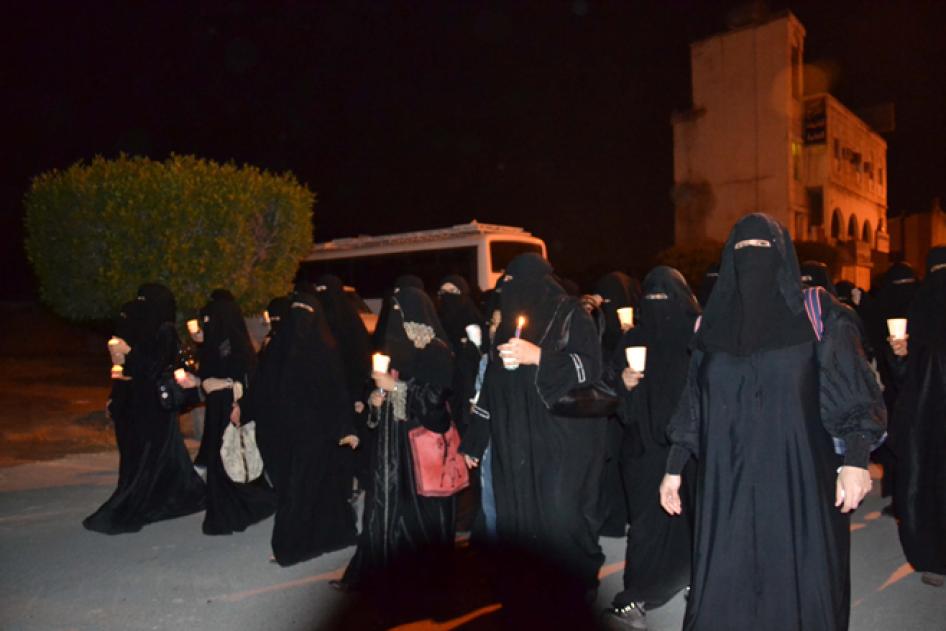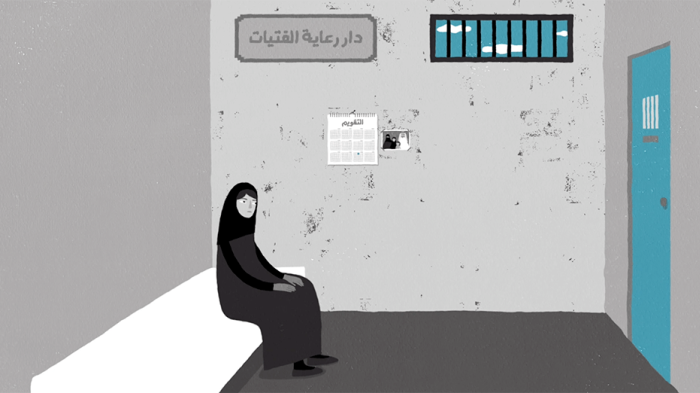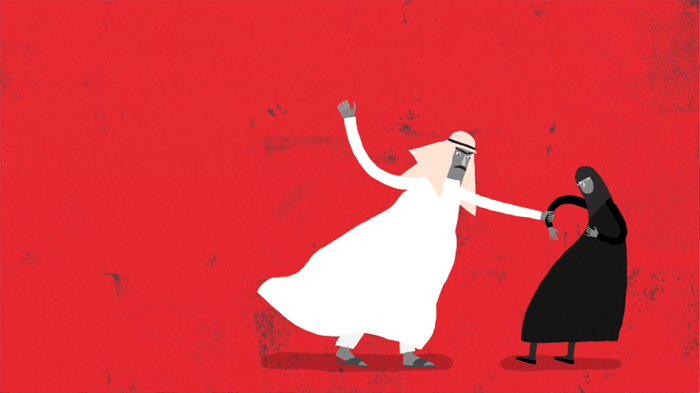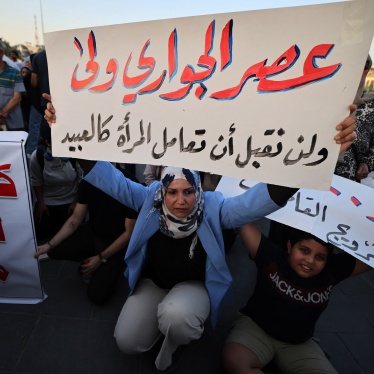Three videos on Saudi Arabia’s male guardianship system went viral this week.
In three days, the videos attracted 2 million views and effectively reached more than 6 million people. People tweeted and retweeted the English and Arabic hashtags #TogetherToEndMaleGuardianship and #معا_لإنهاء_ولاية_الرجل_على_المرأ thousands of times. And they accessed the Human Rights Watch (HRW) research that initiated the campaign more than 13,000 times in English and in Arabic.
Our new report on Saudi Arabia’s male guardianship system, “Boxed In: Women and Saudi Arabia’s Male Guardianship System,” examines in detail the panoply of barriers adult women in the country face when attempting to make decisions or take action without the presence or consent of a male relative. The videos offer examples – women whose guardians prevented their travel, refused to release them from prison or abused them and maintained authority over them.
After a year’s worth of conversation with incredible Saudi women, I followed the social media discussion closely. Responses ran the gamut from Saudi women reaching out to share their own stories of guardians restricting their freedoms to a Saudi man assuring me women in the country were fine. His evidence? He paid his wife’s beauty clinic invoices.
There were a few common refrains.
Guardianship rules are custom, not law or policy.
The chairman of the quasi-governmental National Society for Human Rights was the most prominent proponent of this argument, telling Reuters the report “conflates the laws on women’s guardianship … with customs prevailing in society that may … take time to change.”
To be sure, some guardianship rules are informal, but many others are government-enforced.
Just this month, a female Saudi lawyer launched KnowYourRights, an app that “defines the rights of Saudi women in courts” and includes a page laying out official transactions that require guardian permission.
The list includes permission for women to travel, marry or be released from prison at the end of their sentences.
The Justice and Interior Ministries websites give guardians electronic options to cement their control – to permit or prohibit women’s travel or to file legal claims enforcing their authority – all from the comfort of home.
For women on the receiving end of discrimination, it doesn’t much matter if guardianship rules are “custom” or “law.” The result is the same: Decisions are imposed on women without their say. Saudi Arabia has an obligation to address the discrimination – now.
Guardianship rules are meant to protect women.
I spoke with women who were physically abused by their guardians, women who were prevented from travel, study or work by their guardians and women whose relatives or friends were forced to pay their guardians large sums for the required permissions to work or travel.
Women whose guardians refuse to release them from prison are forced to choose between staying in a state institution or, following an arranged marriage, exiting under the guardianship of a different man, her new husband.
This is not protection. It is exploitation and abuse.
Yes, women elsewhere routinely suffer violence from men, but the guardianship system gives Saudi men a unique tool to abuse and exploit women.
The state’s role should be to prevent violence against women, not facilitate it.
Islam requires this. Leave Saudi society alone.
No other Muslim nation has such a comprehensive male guardianship system.
More important, dozens of Saudi citizens, including a former judge and respected Islamic scholar, told me that guardianship as applied by Saudi Arabia has no place in their understanding of Islam – that it is not only not required but actually at odds with other Islamic fundamental precepts like equality and respect.
But the report and videos are not about Islam nor about critiquing Saudi society – half of Saudi society, after all, is female. If women were given an equal say in their country’s future, as is their right, they’d be an incredible asset.
Only foreigners want to end guardianship. Saudi women are happy.
This refrain, perhaps the most common, ignores and obscures what many Saudi women are saying.
We developed our report and videos after dozens of discussions with Saudi women.
After we published the report, prominent Saudi women’s rights activists shared the text, tweeted the videos, used the hashtag, and added their own take on why guardianship should be abolished. So did prominent businesswomen, academics, and comedians – even a government official retweeted it.
This is hardly the first time people have called to abolish guardianship. Incredibly courageous (and apparently indefatigable) Saudi women have called for the very same thing for years, even presenting petitions to the government to demand it.
This report and these videos don’t speak on behalf of these women. They stand with them.
Three videos went viral, and hashtags were shared, thousands of times over.
Yet, Saudi officials are still telling women: It takes time. Wait. Your rights will come. On our schedule.
The outpouring of support for this campaign showed that many Saudi women are tired of waiting.
Women are not the only ones. One person said, “I am a Saudi man and I feel ashamed every time I have to sign papers on behalf of my mother because she can’t.”
The Saudi state should pay attention. It is very clear what needs to be done.











